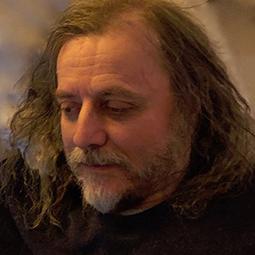
Diederik Aerts
Biography
Professor Diederik Aerts graduated with an MSc in Mathematical Physics and holds a PhD in Theoretical Physics from Brussels Free University. For his doctoral research, he worked with Constantin Piron within the so-called ‘Geneva School on the Foundations of Physics’, on the ‘quantum axiomatic description of composite entities’, proving among other things the ‘impossibility of standard quantum theory to model systems of separated entities’.
For his postdoc, Professor Aerts worked at the Belgian National Fund for Scientific Research, where he was also a tenured researcher, and he then became a professor at Brussels Free University (VUB). There, he was the director of the Center Leo Apostel of Interdisciplinary Studies, before becoming emeritus a year ago. He is Editor-in-Chief of the Springer Nature journal ‘Foundations of Science’ and a board member of the Worldviews group, founded by the late philosopher Leo Apostel. He is also president of the Centre for Quantum Social and Cognitive Science (IQSCS) at Leicester University (UK) and a Fellow of the College of the International Institute for Advanced Studies in Systems Research and Cybernetics (IIAS). He was the scientific and artistic coordinator of the ‘Einstein meets Magritte’ conference, at the VUB, where some of the world’s leading scientists and artists gathered to reflect on science, nature, human action and society. This was followed up by two international symposia co-organized with his collaborators and students, ‘Times of Entanglement’ at the World-Exhibition in Shanghai and ‘Worlds of Entanglement’ at the VUB.
Professor Aerts is considered to be one of the pioneers of the research domain called ‘Quantum Cognition’, where quantum structures are used to model aspects of human cognition and decision, a domain in which he is still actively engaged with his group of collaborators and PhD students. Starting from his reflection in the field of quantum cognition, Professor Aerts also formulated a new interpretation of quantum theory, called the ‘conceptuality interpretation’, where quantum entities are considered to be concepts (meaning entities) instead of objects. With his group, he is currently elaborating this challenging approach in all its possible facets and fields of inquiry, as it appears to be able to elucidate fundamental aspects of quantum theory, such as uncertainty, indistinguishability, entanglement and superposition, which have not yet found a satisfactory explanation in existing quantum interpretations.
